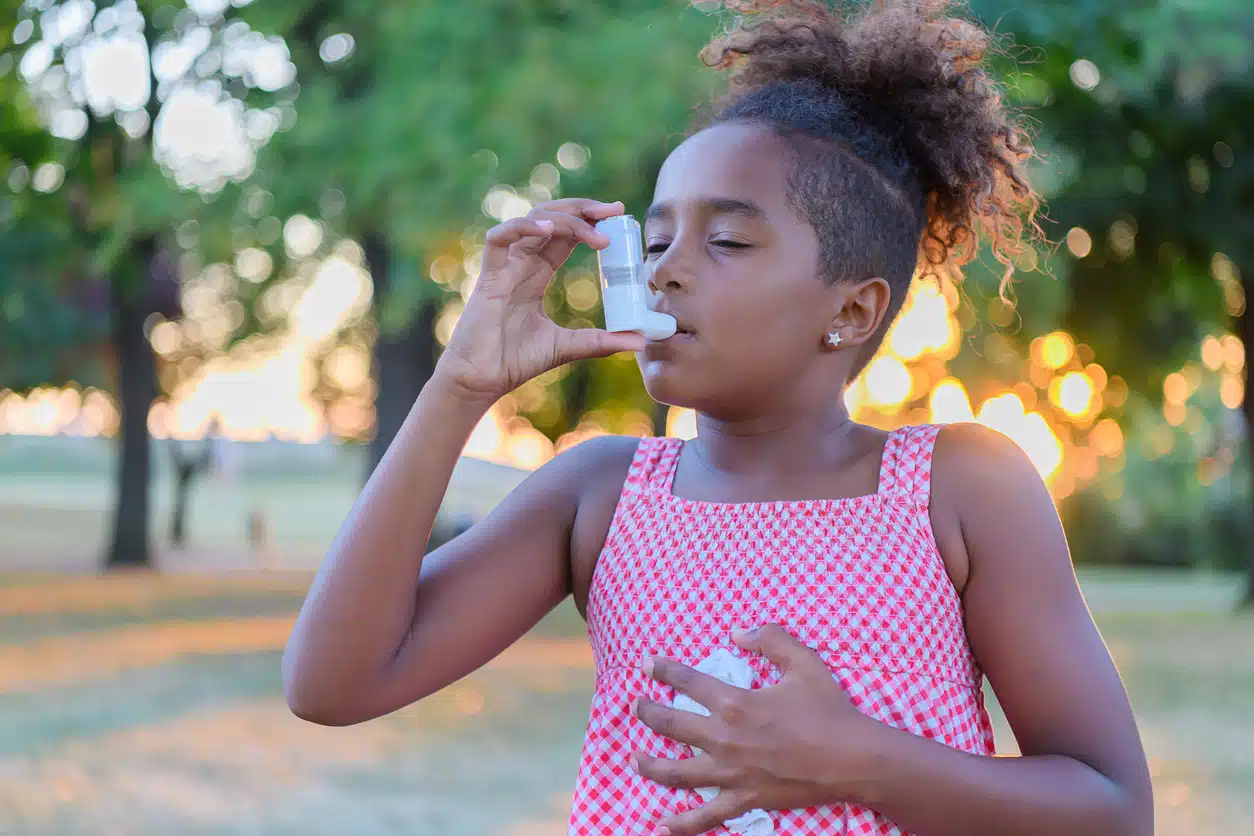The holiday season is filled with excitement, family gatherings, and festive activities, but for children with asthma, it can also bring challenges. Cold weather, holiday travel, and exposure to seasonal triggers can all increase the risk of asthma flare-ups. Here are some quick-relief tips to help manage asthma symptoms and keep the holiday season fun and safe for everyone.
1. Keep a Quick-Relief Inhaler Accessible
Holiday activities often mean being on the go, so it’s essential to have a quick-relief inhaler handy:
- Carry an Inhaler Everywhere: Whether at home, shopping, or at a holiday event, keep an inhaler within reach for fast relief.
- Pre-Treat Before Activities: If your child is sensitive to cold air or exercise, use the inhaler before engaging in activities that may trigger symptoms.
- Follow the Doctor’s Recommendations: Make sure to follow prescribed doses and usage guidelines for quick-relief medications.
Having a quick-relief inhaler on hand is essential for managing unexpected asthma symptoms during holiday outings.
2. Dress Warmly for Outdoor Activities
Cold air can be a strong asthma trigger, so if your holiday plans include outdoor events, it’s important to dress appropriately:
- Wear a Scarf or Mask: Covering your child’s mouth and nose with a scarf or mask helps warm the air before it enters their lungs.
- Dress in Layers: Layers provide extra warmth and can be adjusted based on activity level or changes in temperature.
- Avoid Long Periods Outside: Try to keep outdoor activities short to reduce exposure to cold air, which can irritate the airways.
Keeping kids warm helps prevent cold-induced asthma symptoms, making outdoor activities more comfortable.
3. Avoid Indoor Triggers at Gatherings
Indoor holiday gatherings can introduce potential asthma triggers, from scented candles to pet dander:
- Politely Decline Scented Items: Strong perfumes, air fresheners, and holiday candles can irritate the airways, so request fragrance-free environments if possible.
- Plan Around Pet Allergies: If visiting a home with pets, consider creating a pet-free space for your child to minimize exposure.
- Reduce Exposure to Fireplace Smoke: Cozy fires are common during the holidays, but wood smoke can worsen asthma. Try to keep your child away from open fireplaces.
Being mindful of indoor triggers helps reduce the risk of asthma flare-ups while enjoying family gatherings.
4. Take Breaks During Physical Activities
Holiday games, dancing, and playtime with family are fun but can be tiring for kids with asthma:
- Encourage Frequent Breaks: Allow your child to take breaks to catch their breath and avoid overexertion.
- Stay Hydrated: Encourage your child to drink water, as hydration supports better respiratory function.
- Use Quick-Relief Medication if Needed: If your child shows signs of breathing difficulty, use the quick-relief inhaler to manage symptoms.
Taking breaks and staying hydrated allows kids with asthma to enjoy holiday fun without overstraining their lungs.
5. Watch Out for Food Triggers
For children with asthma linked to food allergies, holiday treats may sometimes contain hidden triggers:
- Check Ingredients Carefully: Common holiday foods may contain nuts, dairy, or other allergens that could worsen asthma symptoms.
- Pack Safe Snacks: Bring allergy-friendly snacks for your child to ensure they have safe options to enjoy during holiday gatherings.
- Educate Family Members: Inform family members of any dietary restrictions so they can avoid offering foods that may trigger symptoms.
Being aware of food allergies helps ensure your child can safely enjoy holiday treats without risk.
6. Keep a Calm, Stress-Free Environment
Excitement and stress can sometimes contribute to asthma flare-ups, so aim for a calm environment:
- Prepare for Events in Advance: Plan holiday outings to reduce rushing, which can cause unnecessary stress for both parents and kids.
- Encourage Deep Breathing: Practice simple breathing exercises with your child if they feel overwhelmed or anxious.
- Create a Quiet Space: Designate a quiet area where your child can relax if they start to feel tired or stressed.
Maintaining a relaxed, low-stress atmosphere can help keep asthma symptoms at bay, allowing for a more enjoyable holiday experience.
Final Thoughts
The holiday season can be enjoyable and safe for children with asthma when a few quick-relief strategies are in place. By keeping an inhaler accessible, dressing warmly, managing indoor triggers, and providing a calm environment, you can help your child participate in holiday activities without discomfort. A little preparation goes a long way in making holiday memories healthy and enjoyable for the whole family.

